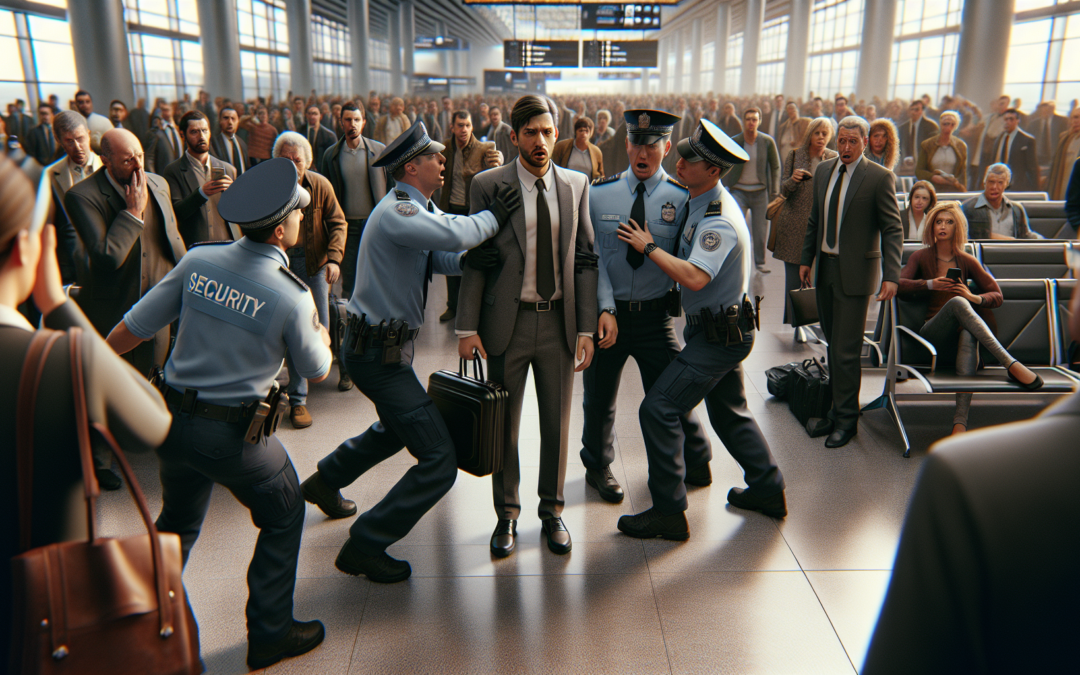The Complex Web of Rights and Protections
Law enforcement officers serve as the visible guardians of our society’s laws and liberties, entrusted with the noble task of upholding justice while protecting citizens. This sacred duty, however, becomes increasingly complex in the face of First Amendment audits—a modern and contentious practice that challenges not only the patience and professionalism of those in uniform but also the foundations upon which they stand.
Whenever officers report for duty, they enter the day with all its unpredictable influences, a chaotic environment that’s not just shaped by lawfulness and civility but perpetually threatened by misunderstandings and chaos. The fallout of these interactions can be as trivial as a viral video or as monumental as a lawsuit, each requiring the officer to tread lightly while decisively maneuvering through this ever-shifting landscape.
The Scrutiny of a Lens
From the click of a ‘record’ button begins a ballet of intent, laden with the operative burden of professionalism, empathy, and authority. Officers know their face may soon be plastered onto social media platforms, dissected procedurally by citizens hungry for a snippet of controversy. This omnipresence of observation adds an extra layer of pressure, compelling officers to envisage their actions not just as custodians of law but potential symbols in a national conversation of freedoms and fallacies.
Each encounter reminds officers that the law they swear to uphold is open to interpretation and challenge. With an unprecedented ability to livestream conflicts straight to receptive online audiences, auditors often provoke with calculated challenges to test the outer limits of free speech, instigating reactions. For law enforcement professionals, these scenarios present a catch-22: where the legal right to film in public draws into conversation the equally compelling right to maintain public safety and order.
Empathy, Sensitivity, and Duty
In a world layered with intricacies and prejudices, officers are more than enforcers. They are also calmly impelled to reassure and connect, practitioners of humanity in high-stakes situations. When an officer meets an auditor, armed with nothing but a video camera and potentially divisive rhetoric, they are urged to remember: this individual, too, is a citizen whom they are sworn to protect.
And yet, genuinely connecting with someone whose sole devotion it may be to catch them off guard is no simple feat. It requires not only strength and dexterity but profound emotional intelligence—a skill subtly honed and deeply essential when wading through heart-stirring gray areas, where the stakes might involve not just reputation but also personal wellbeing. Navigating these mazes of often confusing lawful territory fosters an urgent reality where one can simultaneously embody both hero and villain in a single public lens.
The Human Behind the Badge
However society sees the badge, behind it stands a human being. It’s a stark reality, filled with layers of experiences and emotions— someone who contributes painstaking labor to be proficient and prepared for everyday uncertainties. Each officer comes to the fore with personal convictions, families they return to after hours, and historical contexts that color each judgement call made on duty.
In adapting to face broad stakeholder audiences, supported or targeted by the blink of an unyielding digital eye, officers routinely encounter questions of identity, morality, and rectitude every time they salute. As Dr. John Ligato explores on his YouTube Channel, The John Ligato Show, these commitments echo far beyond any screen, posed carefully along the jagged interplay of perceptions and reality.
Moving from Conflict Towards Resolution
Resolution in the context of demonstrations for free speech must always consider the broader prospect of understanding rather than antagonism. It’s crucial that teams aiding justice learn centrally proactive methods, comprehending criticisms not as an opponent but partners in dialogue, blending tactical keystrokes into comprehensive frameworks where education integrates alongside enforcement.
Establishing consistent platforms where law enforcement and civil auditors can collaborate to recognize their distinct—yet fundamentally cohesive—roles in fostering dialogue, understanding and peace cultivates resilient foundations upon which societies can aspire and sustain longevity together. Listen here to delve deeper into meaningful discussions around these bridging narratives.
The Bond of Community Trust
Law enforcement without the public’s trust counters itself, and even in uncertain advancements rife with paradoxes trails forward, forged through intimacy in shared values, investing compassion to mend fragments of misunderstanding. Binding community, engagement, and sensitivity insights defensive unity rowed in solidarity towards compliance reflective through all spectra—both societal and perceived.
Join further interactive exchanges and insights with The John Ligato Show for creating awareness around these pivotal societal aspects. Engage in discussions accentuating collaboration while rallying inquisitive heart summaries answering overarching critical questions posed by truthful endeavors towards a safer, more equitable social order.
Law enforcement officers in real-time are piloting paths through contested thought-trains and public transparency driven similarly—but perhaps, more importantly—guided by a moral arch imposing reflective opportunities open through trust, heartwarming learning curves, reframed perceptions, and collaborative rebirth.

Recent Comments